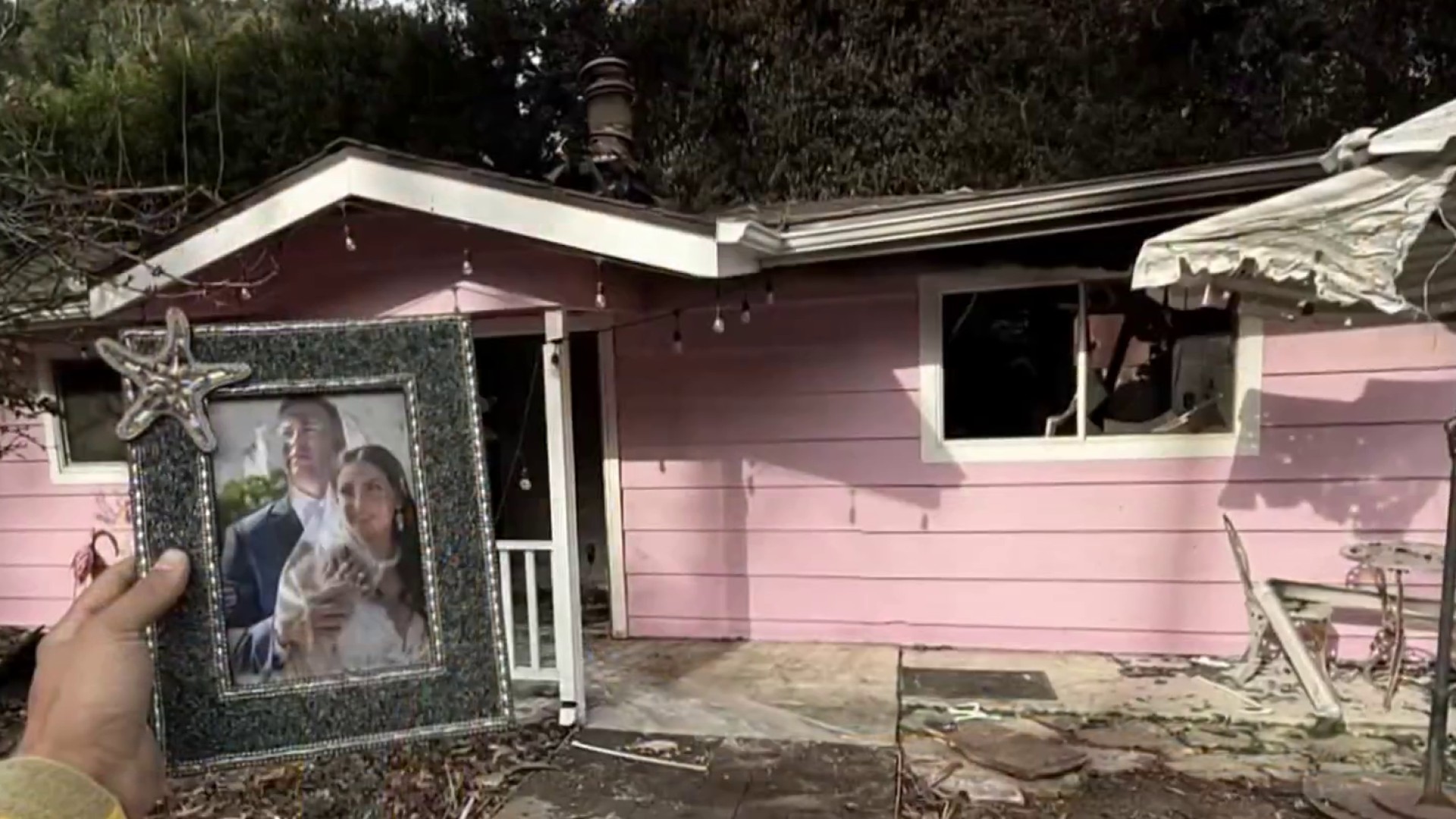Cory Pollard says some of his friends laugh at him when he tells them.
He doesn't care. He actually really likes farming.
"When people think farmers, they think you're going to be out there in the sun wearing overalls and straw hat, juggling dirt and stuff like that, but I like it out here and that's what matters," said the US Army veteran.
Pollard works alongside Carlos Rivera, another vet.
"We served in the same unit. We went to Iraq twice together," Rivera said.
Pollard and Rivera were infantry men and part of the initial push into Fallujah.
Brothers on the battlefield, they now work in fields of kale and lettuce. They work at a small organic farm -- and at a time when unemployment continues to be high, farming is a good option for many returning vets.
Local
Get Los Angeles's latest local news on crime, entertainment, weather, schools, COVID, cost of living and more. Here's your go-to source for today's LA news.
Industry experts say that there are eight times as many farmers over the age of 65 as under. Simply put, the need for young farmers is tremendous.
Colin and Karen Archipley believe veterans can fill that need, so they founded Archi's Acres in Escondido, Calif.
"We're not training people to be out in the field picking cherries," Colin said. "We're training people to be business owners and managers."
Extra: Learn more about why Colin believes this is the time for the next "greatest generation."
The Archipleys believe vets have valuable skill sets and a strong work ethic. Vets are team oriented and believe in completing whatever the mission may be.
For their organic farm, they hire veterans like Edgar Hercila, who says the transition from soldier to farmer makes sense.
"Coming out, you still have that calling of service," Hercila said. "It's natural."
Extra: Learn more about why farming is a family legacy for Edgar Hercila.
But aside from being patriotic, working a small farm makes good business sense. Archi's Acres used hydroponics for its crops. The farmers grow their basil and lettuce without soil.
Walking around the main greenhouse Hercila explains, "This greenhouse, which is a tenth of an acre, can produce 800 basil plants a week. Normally you turn a crop approximately 17 times in a greenhouse condition as opposed to conventional farming, which is about seven times."
Archi's Acres' basil is now sold to nearby Whole Foods Markets. Colin said "the bigger companies are looking for the locally produced stuff because that's what the consumers want."
Colin's success did not come easily. They went through multiple "heartaches" when developing their small business. But as a marine, Colin is not one to give up.
"We don't know how to surrender," he said. "When we see a challenge we go into it. When we get fired upon, we move into the fire."
Extra: Learn more about why Karen and Colin started Archi's Acres.
Colin served three dangerous tours in Iraq, including combat in Baghdad and Fallujah. When he returned from his final tour, members of his unit reenlisted. Marines are very team oriented. They pride themselves on looking out for each other.
Colin was tempted to re-enlist once again.
But Karen wanted her husband home. She wanted him safe.
"I said, 'No, that's not OK with me. No more deployments,'" Karen Archipley said.
So, the couple came up with a way to serve their nation at home.
"That's how we stumbled upon creating the Veterans Sustainable Agricultural Training (VSAT) program," Karen Archipley said.
Now, Karen and Colin run the six-week training program to give veterans skills in both business and agriculture. As part of the graduation criteria, students present a business pitch to venture capitalists.
Agriculture is the work veterans want to do. It is physical work and it happens outdoors. Many veterans cannot see themselves working in cubicles and some have difficulties dealing with people when they return from combat. Farming provides them with a sense of calm and purpose.
Extra: More on why these vets find farming therapeutic.
Carlos Rivera says working with plants gave him a patience he didn't have before.
"Out there (Iraq), not to be cruel, but they're teaching us how to kill people, but out here, it's the opposite," Rivera said. "We're learning how to plant living things and watching them grow instead of ending life."
The ultimate goal of the VSAT program is to get these veterans work.
"I've already talked to two markets who told me that if I can get a place to grow, they're willing to buy basil and do small time," said Robert Caudill, a sergeant in the Marine Corps.
Karen and Colin believe in taking care of troops and home. For them, it is both a duty and an honor.
"It's not even pride so much as it's a privilege," Karen Archipley said. "We have the privilege to participate in the lives in our returning military."
Back to Work: This story is one in a weeklong series focusing on jobs and employment in Southern California.



